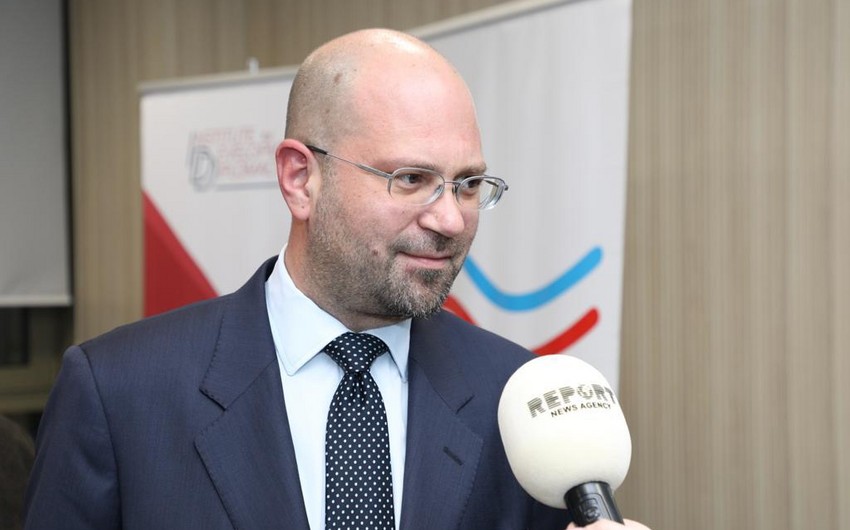Given the current global energy security concerns resulting from sanctions against Russia due to the invasion of Ukraine, as well as rising energy prices, there is no more reliable and non-Western supplier of oil and gas for the European Union than Azerbaijan, Damjan Krnjević Mišković, Director for Policy Research and Analysis at ADA University’s Institute for Development and Diplomacy and former senior adviser to the president and foreign minister of Serbia, told Report.
According to him, today, all interested parties understand that Azerbaijan has been and remains an integral part of the EU energy balance.
“All this was before the Russian-Ukrainian war, but the priority [of supplies from Azerbaijan] has increased due to the choice made by the West in response to this war,” he said.
The expert recalled that a Memorandum of Understanding was signed during the visit of the head of the European Commission, Ursula von der Leyen, to Azerbaijan in July 2022. It identified three areas of strategic cooperation between the EU and Azerbaijan: gas, electricity and hydrogen.
“Thus, we can say that Azerbaijan plays a triple role in ensuring the energy security of Europe,” stressed Krnjević.
According to the expert, the first aspect of the Memorandum is that gas exports to Southeast Europe will be doubled by 2027 if everything goes according to plan.
“This is the minimum, not the maximum. And, despite the objections hovering around due to environmental and, to a certain extent, geopolitical reasons, I would predict that doubling the capacity of the Southern Gas Corridor will not be the last gas megaproject with the participation of Azerbaijan,” he guessed.
The second aspect is the supply of electricity from renewable sources. This project received wide publicity in December 2022, when Azerbaijan, Georgia, Romania and Hungary announced an agreement to build an undersea cable to transmit electricity. Azerbaijan will supply electricity generated from wind and solar energy, and Georgia from hydro sources.
At the same time, Krnjević expects other countries in South-Eastern Europe to eventually join the project.
“The third aspect is hydrogen. This is rather a long-term project, but it is important to note that the infrastructure of the Southern Gas Corridor has been built in such a way that, with minor changes, it can be fully or partially converted to transport hydrogen,” he added.
In conclusion, Damjan Krnjević stressed that the cooperation between the EU and Azerbaijan in the energy sector speaks of a robust, secure and friendly partnership: “Both Baku and Brussels are proud and should be proud of this in the future.”


 https://static.report.az/photo/f9caa878-1674-3297-90a2-7fe541bbaf99.jpg
https://static.report.az/photo/f9caa878-1674-3297-90a2-7fe541bbaf99.jpg

